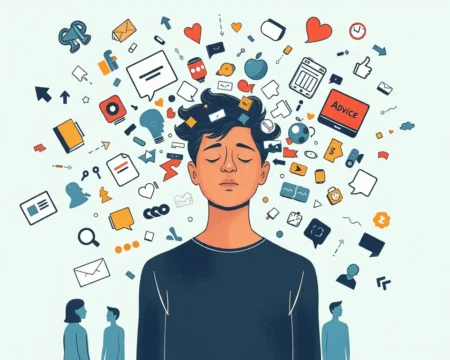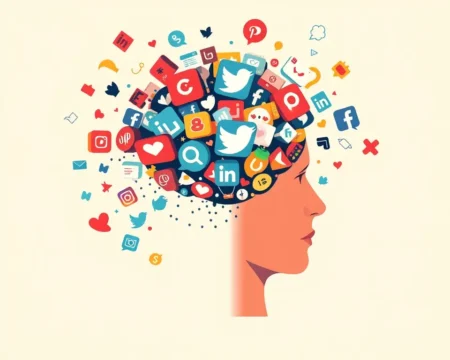The self-help industry is a multi-billion dollar behemoth, promising transformation, happiness, and success. From best-selling books to life-coaching seminars, it’s a world of techniques and tools designed to improve our lives. But does this popular movement actually work? Are these methods genuinely effective, or is it a mirage of positivity and fleeting motivation? Let’s delve into the world of self-help, examining its methods, successes, and criticisms.
What Exactly is Self-Help?
Self-help, at its core, is the process of taking personal responsibility for one’s own growth and well-being. It encompasses a variety of techniques, tools and strategies aimed at enhancing different aspects of life. These may include personal development, mindfulness, inner peace, health and wellness, relationship advice, career success, financial advice, spirituality, creativity, resilience, and happiness. Self-help resources include books, workshops, online courses, apps, and even communities centered around specific practices.
The Psychology Behind Self-Help
The desire for self-improvement is deeply rooted in human psychology. Abraham Maslow’s hierarchy of needs places self-actualization at the pinnacle, representing the innate drive to reach one’s fullest potential. Self-help taps into this fundamental desire for growth and fulfillment. Many self-help techniques are based on established psychological principles such as cognitive behavioral therapy (CBT), which helps individuals identify and change negative thought patterns, and mindfulness practices, which promote awareness and emotional regulation.
Common Themes and Techniques
While varied in their approach, self-help resources often share common themes:
- Goal Setting: Establishing clear and achievable objectives is a cornerstone of personal development. The SMART criteria (Specific, Measurable, Achievable, Relevant, Time-bound) is frequently used to frame goals effectively.
- Self-Awareness: Introspection through journaling, meditation, and personality assessments helps understand strengths, weaknesses, values, and aspirations.
- Gratitude: Expressing gratitude can significantly enhance mental well-being and promote a more positive outlook on life.
- Mindfulness: Cultivating present moment awareness through practices like meditation can help to manage stress and enhance emotional regulation.
- Positive Self-Talk: Using positive language and affirmations to challenge negative self-perceptions and build self-esteem.
- Resilience: Learning to navigate and bounce back from adversity is key to personal growth and overcoming life’s challenges.
- Self-Care: Prioritizing one’s own well-being through healthy habits and relaxation techniques. Self-care is about nurturing physical, emotional, and mental health, and may include exercise, proper nutrition, adequate sleep, and engaging in enjoyable activities.
Does Self-Help Actually Work?
The effectiveness of self-help is a hotly debated topic. While countless individuals swear by its transformative power, critics raise valid concerns.
The Case for Self-Help
- Improved Mental Health: Studies show that self-help methods, particularly guided self-help, can be effective for a range of mental health difficulties, including depression and anxiety disorders. These methods often have effect sizes comparable to face-to-face treatments. Self-care practices are also linked to enhanced self-esteem, increased optimism and reduced symptoms of anxiety and depression.
- Accessibility and Affordability: Self-help resources are often more accessible and affordable than traditional therapy, making them a viable option for those who might not otherwise seek help.
- Personal Empowerment: Self-help encourages individuals to take control of their lives and make positive changes, fostering a sense of agency and self-reliance.
- Wide Range of Applications: Self-help resources offer guidance on various aspects of life, addressing issues like stress management, relationship problems, career advancement, and personal fulfillment.
- Skill development: Self-help techniques can help you enhance various characteristics of yourself, such as reappraisal skills, positivity, and building a growth mindset.
Criticisms of the Self-Help Industry
Despite its potential benefits, the self-help industry faces several criticisms:
- Unrealistic Expectations: Self-help marketing often creates unrealistic expectations of rapid and dramatic transformation. This can lead to disappointment and feelings of inadequacy when results don’t meet these inflated claims.
- Lack of Scientific Validation: Much of self-help advice lacks rigorous scientific backing. Many “gurus” and “wellness experts” promote unproven techniques, which can be misleading.
- Reinforcing Inferiority: Some argue that the self-help industry can inadvertently reinforce feelings of inferiority and shame, suggesting that there is something fundamentally wrong with individuals who need self-improvement.
- Avoidance: Self-help can sometimes become a form of avoidance, distracting individuals from addressing underlying issues. The act of reading a self-help book or attending a seminar might provide temporary relief without fostering actual change.
- Profit-Driven Motives: The industry’s profit motive can prioritize the perception of change over actual results. This can lead to the promotion of quick fixes and temporary solutions that lack long-term efficacy. Some also believe the industry mantra is “A patient healed is a customer lost”.
- Individualism: The focus on individualism can lead to a neglect of social and cultural factors that influence well-being. The self-help industry can promote a “blame the individual” mentality, ignoring broader societal issues.
- Redundancy: Many self-help books rehash the same basic principles, presenting them through different angles, frameworks, and analogies. This redundancy can lead to a lack of new insights for those who regularly engage in self-help literature.
How to Make Self-Help Work for You
If you choose to engage with self-help, here are some guidelines to maximize its benefits:
- Be Realistic: Approach self-help with realistic expectations, recognizing that genuine change takes time and effort.
- Be Selective: Choose self-help resources carefully, opting for those that are based on sound psychological principles and backed by research.
- Be Critical: Evaluate the claims and promises of self-help resources critically, being wary of exaggerated claims and quick fixes.
- Focus on Application: Reading is not enough; you need to apply the advice and techniques that are offered and actively work on yourself.
- Seek Professional Help When Needed: Self-help should not replace professional therapy or mental health care. If you are struggling with serious mental health issues, seek help from a qualified professional.
- Combine Self-Help with Other Strategies: Use self-help as one component of a holistic approach to well-being that includes healthy lifestyle choices and supportive relationships.
- Embrace Self-Awareness: Understand your strengths and weaknesses so you know what areas to target for improvement.
- Practice Consistently: Regularly engage in self-care practices and techniques to maintain progress and continue learning.
Conclusion
The self-help industry is a complex and multifaceted phenomenon with both potential benefits and pitfalls. While it can be a valuable tool for personal growth and well-being, it is crucial to approach it with a critical and discerning eye. By combining self-help techniques with a realistic outlook, professional support when needed, and a commitment to consistent effort, individuals can harness its power to create positive change in their lives. The key lies in recognizing self-help as a process of empowerment, not a panacea for all of life’s challenges.










